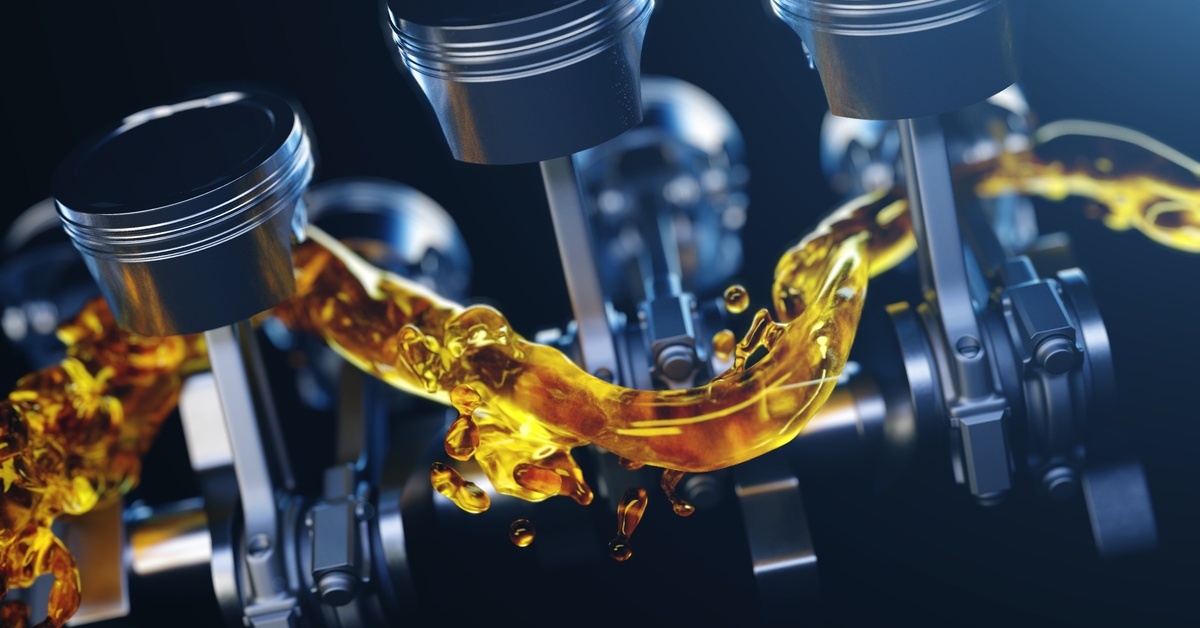For decades, automotive oils have been the lifeblood of vehicle engines, performing the critical role of lubrication, cooling, and cleaning. However, not all oils are created equal, and technology has revolutionized the types of oils used in engines today. From basic conventional oils to advanced synthetic formulations, each development represents significant progress in engine protection and performance. This blog dives into the fascinating evolution from conventional to synthetic automotive oils. We’ll teach you what makes synthetic oils the preferred choice for modern vehicles.
The Birth of Conventional Automotive Oils
When the automobile industry first took off, conventional oils were the only option for drivers. Manufacturers made conventional oils from crude oil and refined them to remove impurities, though they remained basic by today’s standards. Early formulations provided a rudimentary level of engine protection and lubrication, sufficient for the simple engines of that era.
However, as vehicle technology advanced, limitations in the performance of conventional oils began to emerge. They struggled to maintain viscosity under extreme temperatures and lacked the additives necessary to prevent deposits and sludge formation.

Limitations of Conventional Oils
Despite their early ubiquity, conventional oils came with inherent drawbacks. Their natural molecular structure lacked uniformity, and this inconsistency affected performance. Over time, these oils break down more rapidly, especially under high heat or cold conditions.
Additionally, conventional oils were prone to oxidation, which led to the formation of sludge that could accumulate in the engine, causing inefficiency and wear. Although conventional oils were adequate for earlier vehicles, they became increasingly unsuitable as engine designs grew more complex and performance expectations rose.
The Push for Cleanliness and Efficiency
By the mid-20th century, the automotive industry began pushing boundaries in engine design. The need for more reliable lubricants came with higher compression ratios and more powerful engines. Drivers and mechanics observed that engines were experiencing a range of issues, from reduced efficiency to premature wear, and the culprit was often the oil. Automakers and oil manufacturers recognized the need for innovation, laying the foundation for developing new technologies in automotive oils.
The Origins of Synthetic Oils
Synthetic oil marked a significant milestone in the evolution of automotive lubricants. Engineers developed synthetic oils during World War II to power aircraft engines operating in extreme temperatures. These oils were engineered at a molecular level to deliver precision and performance that conventional oils could not match. Automotive industry experts quickly realized that these advanced lubricants could effectively address the limitations of conventional oils.
Advantages of Synthetic Oils
Synthetic oils offer several key benefits, making them a popular choice for modern engines. Manufacturers chemically engineer synthetic oils for consistency and purity, unlike conventional oils derived directly from crude oil. This precise engineering gives them superior thermal stability and resistance to oxidation, reducing the risk of sludge buildup over time.
Additionally, synthetic oils maintain their performance across a broader temperature range, providing excellent lubrication in extreme heat and cold. Their advanced formulations include additives designed to clean and protect engine components, ensuring better fuel efficiency and longer engine lifespans.
Adoption of Synthetic Oils in the Automotive Industry
Although synthetic oils gained a foothold in high-performance and luxury vehicles in the 1970s and 1980s, it took time for them to become more widely adopted. The cost was significant, as synthetic oils were initially more expensive than conventional.
However, as their benefits became apparent and production techniques improved, more manufacturers began recommending synthetic oils for their vehicles. Today, synthetic oils are commonly used in everything from sports cars to everyday commuter vehicles, reflecting their versatility and effectiveness in modern engine designs.
The Role of Additives in Modern Oils
A major innovation in automotive oils has been the incorporation of additives. These chemical compounds address specific challenges engines face, enhancing the performance of both conventional and synthetic oils.
Typical additives include detergents to keep engine parts clean, antioxidants to prevent oxidation, and viscosity modifiers to maintain consistent lubrication under varying conditions. Synthetic oils, in particular, benefit from advanced additive packages that maximize their capabilities, helping vehicles meet stringent emissions standards and achieve optimal performance.
Synthetic Blend Oils as a Middle Ground
The industry introduced synthetic blends, acknowledging that not all drivers are ready to transition to fully synthetic oils. These oils mix conventional oil with synthetic components, creating a practical compromise between cost and performance. Synthetic blends provide better protection than traditional oils while remaining more affordable than fully synthetic options. They have become especially popular among budget-conscious drivers who want some of the benefits of synthetic oils without the higher price tag.
Environmental Impact and Sustainability
The increased use of synthetic oils has also had implications for environmental sustainability. Although manufacturers derive synthetic oils from petrochemicals, their longevity reduces oil changes and waste. Furthermore, many synthetic oil manufacturers are committed to improving sustainability by incorporating renewable resources and recycling initiatives into their production processes. Using synthetic oils contributes to a more sustainable future for the automotive industry.
Advances in Synthetic Oil Technology
The science behind synthetic oils continues to advance, with manufacturers consistently pushing the envelope regarding durability, efficiency, and environmental friendliness. Today’s synthetic oils not only meet but often exceed the highest industry standards, proving their ability to handle the challenges posed by modern engines.
Additionally, manufacturers engineer synthetic oils to adapt to the demands of cutting-edge automotive technologies, from turbochargers to hybrid vehicles. These innovations ensure that synthetic oils remain at the forefront of lubrication technology, offering solutions that align with the evolving needs of drivers and vehicle manufacturers.
Why Synthetic Is the Future of Automotive Oils

Conventional oils once served as the backbone of the automotive world, but the tide has shifted in favor of synthetic oils. Their superior performance, ability to protect engines under extreme conditions, and contributions to improved fuel efficiency have cemented their status as the go-to choice for modern vehicles. Furthermore, as the industry moves toward greater sustainability and innovation, synthetic oils are well-positioned to evolve with these changes, ensuring they remain relevant and effective in the years ahead.
The evolution of automotive oils, from conventional to synthetic, tells a compelling story of how innovation and necessity drive progress. From conventional oils that laid the groundwork for the automotive industry to synthetic formulations that define the present and future, each stage represents a critical chapter in ensuring engines run smoothly and efficiently.
For vehicle owners, mechanics, and anyone invested in keeping engines in top condition, understanding the differences and advantages of synthetic oils is key to making informed decisions about engine maintenance. If you’ve yet to transition to synthetic oils, there’s no better time to switch and experience the benefits firsthand. Explore premium oil options at Santie Oil Company and give your engine the protection it deserves.

